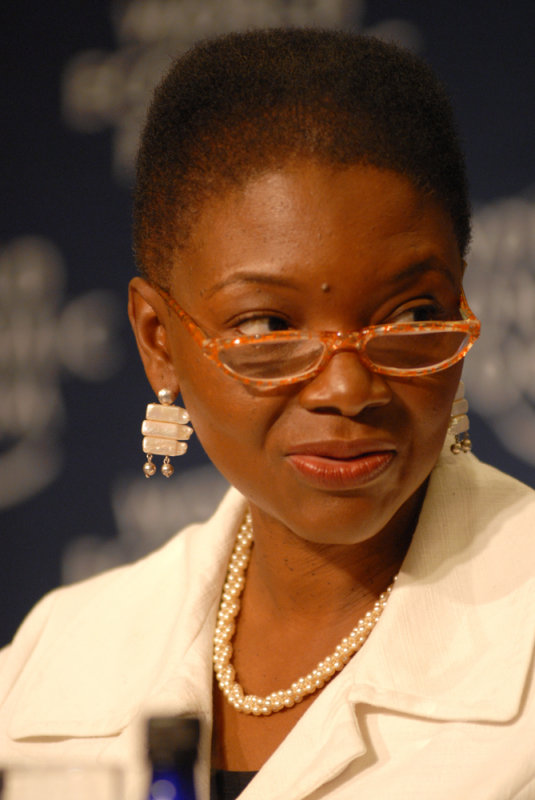Those consulted include:
The International Council of Voluntary Agencies (ICVA), an advocacy alliance of 75 humanitarian and human rights NGOs.
Interaction, the biggest alliance of US-based international NGOs focused on humanitarian and development issues.
The Steering Committee for Humanitarian Response (SCHR), which brings together eight of the major international humanitarian networks, including CARE International, Oxfam, the International Committee of the Red Cross and the Save the Children Alliance.
The Humanitarian Policy Group of the Overseas Development Institute (ODI) in the UK, an influential team of researchers that helps shape and inform humanitarian policy globally.
Here are some of their views:
Advocate independence of humanitarian action. One of the continuing, pressing dangers is that humanitarian action will be co-opted by broader stabilization and counter-terrorism objectives, said Sara Pantuliano, head of the Humanitarian Policy Group at the ODI.
Robert Glasser, the SCHR chair, agreed that "Amos must advocate for the independence of humanitarian action and resist the instrumentalization of relief or development to foreign policy ends."
Amos would also have to tread a careful internal line at the UN. "Political or military objectives frequently dominate the UN's missions, calling into doubt its motivations to also be a humanitarian player ... The perception in some parts of the world that humanitarian agencies are part of a Western agenda must be contradicted," ICVA commented in its June newsletter.
Fight for humanitarian access. "It is critical the new ERC makes garnering greater access to people in need a top-most priority," said Samuel Worthington, head of Interaction. "[Compromised] humanitarian access to communities in need of protection and assistance ... cripples well-intentioned programmes."
ICVA said this would involve hard-hitting negotiation with governments - the forced closure of 13 humanitarian agencies in Darfur, Sudan, in 2009 was evidence that "Many states push sovereignty and non-interference arguments in crises."
Fight for humanitarian staff security. Some 260 humanitarian workers were killed, injured or kidnapped in 2008, the highest yearly toll on record, according to the latest security report by the Humanitarian Policy Group.
Continue to improve coordination: One push behind the humanitarian reforms was to make response more effective through improving coordination: hence the introduction of clusters. ICVA questions if coordination for coordination’s sake has now been overdone. More broadly, the inability of the humanitarian system to respond fast and adequately to increasing levels of natural disasters is a key problem, says the HPG. “Haiti is a test case and things are not going so well at the moment”.
On the other hand, "The question is whether the 60 or so coordination meetings that take place in Port-au-Prince [Haiti's capital] each week help create an effective response strategy," said ICVA head Ed Schenkenberg van Mierop. "Has [coordination] not been overdone? ... The real issue is leadership of the clusters and ... of the humanitarian coordinators."
Find good leaders: SCHR and ODI said the coordinators, who led the UN humanitarian response in emergencies, often came from a diplomatic background and had little experience in the emergency field.
Interaction stressed that leadership throughout the UN humanitarian system needed improvement. "The Haiti earthquake response highlighted the lack of senior, experienced UN humanitarian leadership available to deploy on short notice."
Make humanitarians "less white". "The international response model must be re-oriented to place local organizations and capacity at its centre, with the international community helping them," the SCHR suggested.
ICVA agreed. "Relationships between international organizations, including NGOs and national or local agencies, must be improved. There is a broad sense in the humanitarian community that it remains too white [at its power base]. Creating local ownership by "flipping the system" should see national and local actors in the driver's seat of humanitarian response.”
Schenkenberg said Amos could help shift this perception by ensuring that the humanitarian community followed through on the many lessons from recent evaluations of humanitarian response, such as the Tsunami evaluation report, rather than ignoring them. LINK
Lobby for more attention to disaster preparedness. "Disaster preparedness - not to mention disaster risk reduction - continue to be the orphans of the humanitarian community. Despite clear evidence that there will be a significant return on investments in these areas, it ... [is] difficult to get adequate funding for disaster preparedness," ICVA pointed out.
Advocate in the Security Council on behalf of affected people. John Holmes repeatedly advocated humanitarian concerns in the Security Council and negotiated on behalf of the people hit by emergencies, and Amos must continue this, said the SHCR.
Amos should also strengthen the dialogue with non-state actors in countries such as Afghanistan, Pakistan and Somalia to broaden the understanding of humanitarian principles and help expand humanitarian space, the Humanitarian Policy Group recommended.
Reform the UN Office for the Coordination of Humanitarian Affairs (OCHA): ICVA noted that OCHA had developed a new strategic framework but had not implemented the institutional change needed to carry it out.
Amos should instigate this process, realigning OCHA around field coordination and advocacy, clearing up the divide between the New York and Geneva offices, and addressing problems of high level staff turnover at top positions, which "makes it more difficult to build up institutional knowledge or instil a sense of corporate identity in OCHA staff".
aj/he
This article was produced by IRIN News while it was part of the United Nations Office for the Coordination of Humanitarian Affairs. Please send queries on copyright or liability to the UN. For more information: https://shop.un.org/rights-permissions




